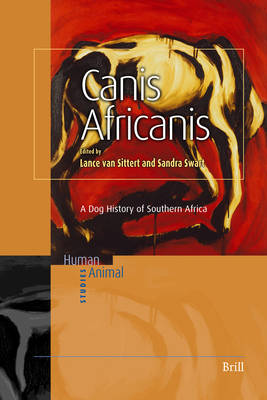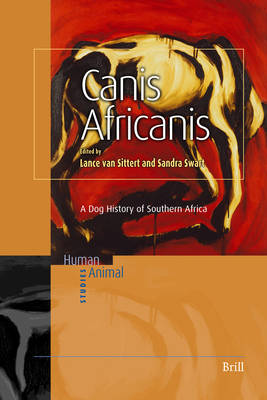
- Afhalen na 1 uur in een winkel met voorraad
- Gratis thuislevering in België vanaf € 30
- Ruim aanbod met 7 miljoen producten
- Afhalen na 1 uur in een winkel met voorraad
- Gratis thuislevering in België vanaf € 30
- Ruim aanbod met 7 miljoen producten
Zoeken
€ 187,45
+ 374 punten
Omschrijving
The role of the dog in human society is the connecting thread that binds the essays in Canis Africanis, each revealing a different part of the complex social history of southern Africa. The essays range widely from concerns over disease, bestiality, and social degradation through gambling on dogs to anxieties over social status reflected through breed classifications, and social rebellion through resisting the dog tax imposed by colonial authorities. With its focus on dogs in human history, this project is part of what has been termed the 'animal turn' in the social sciences, which investigates the spaces which animals inhabit in human society and the way in which animal and human lives interconnect, demonstrating how different human groups construct a range of identities for themselves (and for others) in terms of animals. So instead of conceiving of animals as merely constituents of ecological or agricultural systems, they can be comprehended through their role in human cultures.
Specificaties
Betrokkenen
- Auteur(s):
- Uitgeverij:
Inhoud
- Aantal bladzijden:
- 295
- Taal:
- Engels
- Reeks:
- Reeksnummer:
- nr. 5
Eigenschappen
- Productcode (EAN):
- 9789004154193
- Verschijningsdatum:
- 13/11/2007
- Uitvoering:
- Paperback
- Formaat:
- Trade paperback (VS)
- Afmetingen:
- 162 mm x 239 mm
- Gewicht:
- 512 g

Alleen bij Standaard Boekhandel
+ 374 punten op je klantenkaart van Standaard Boekhandel
Beoordelingen
We publiceren alleen reviews die voldoen aan de voorwaarden voor reviews. Bekijk onze voorwaarden voor reviews.








